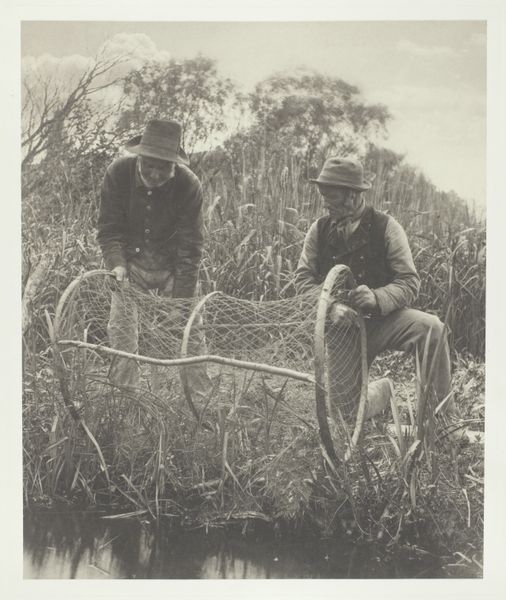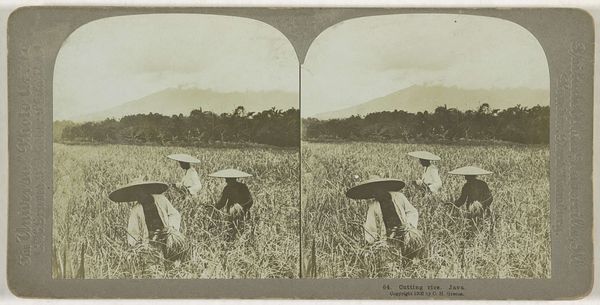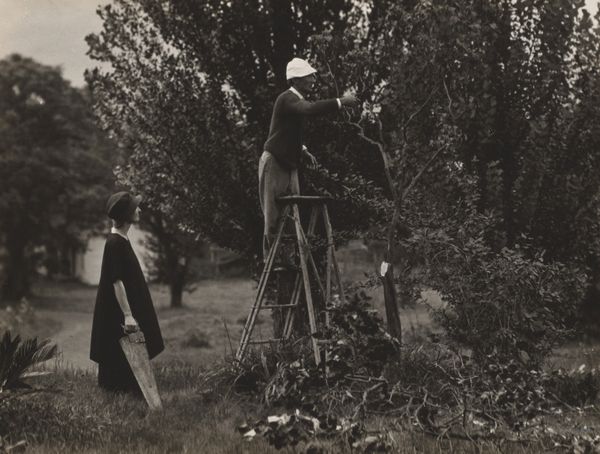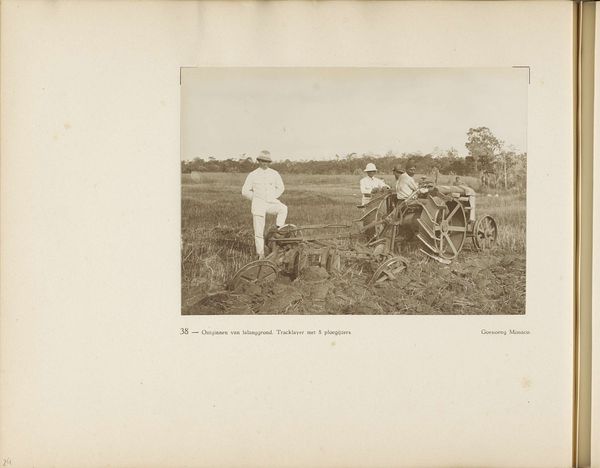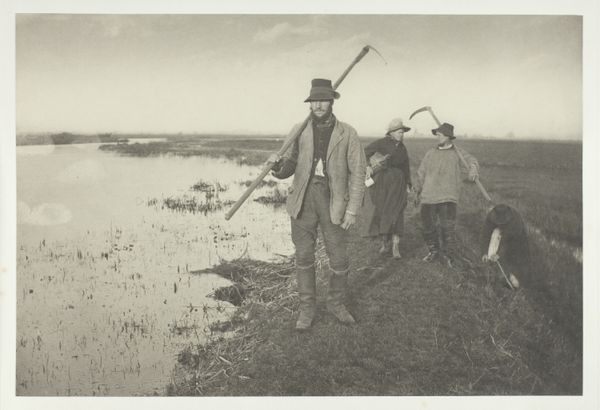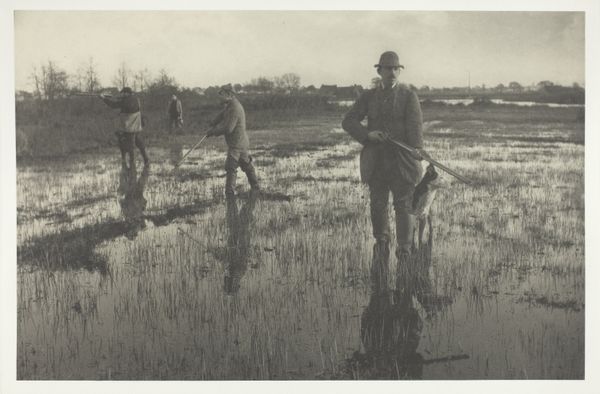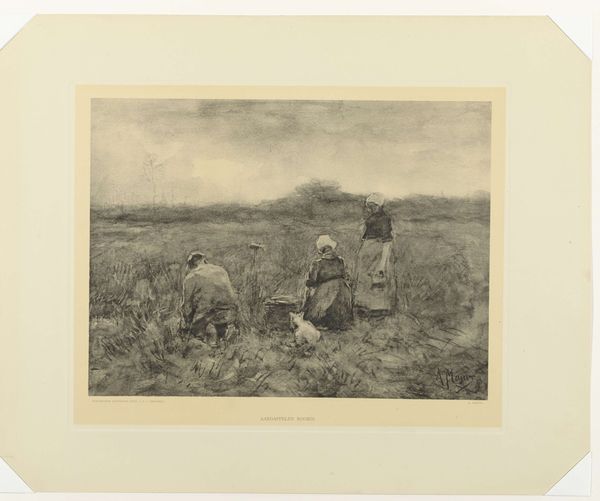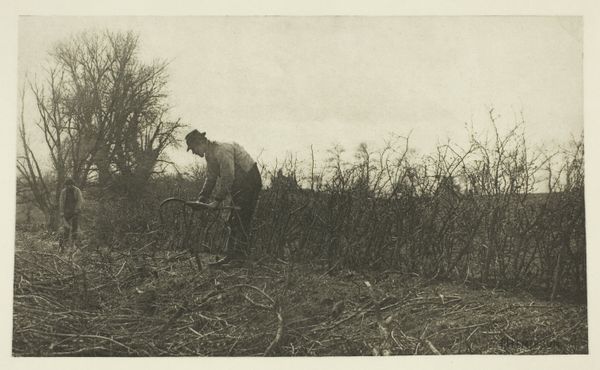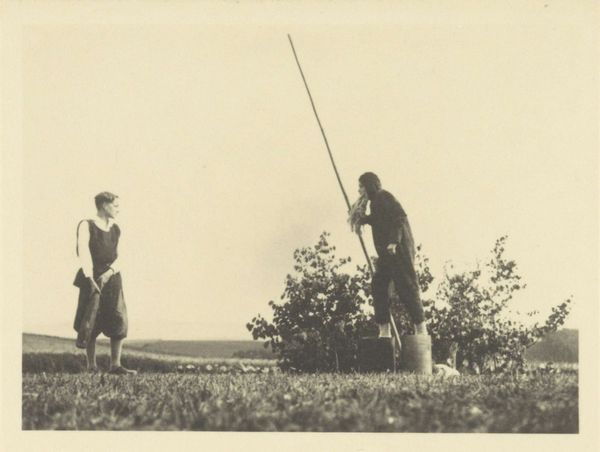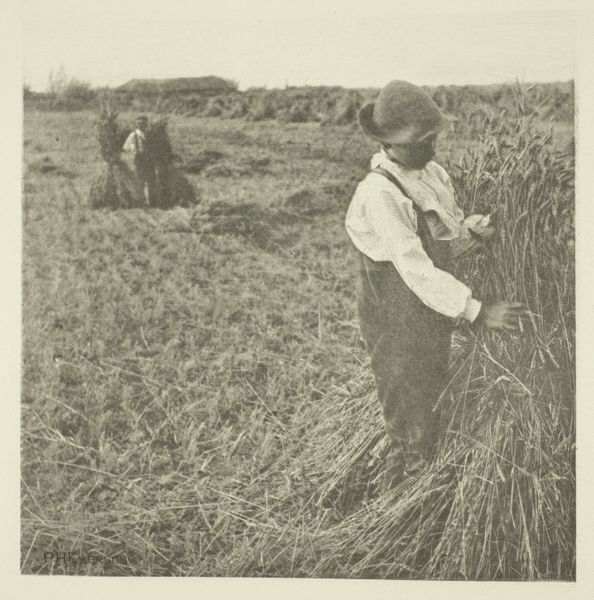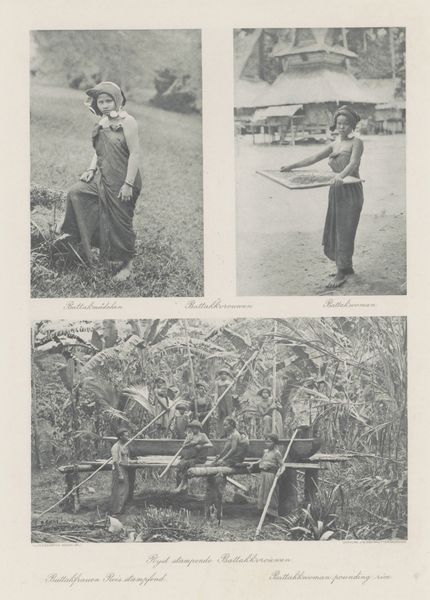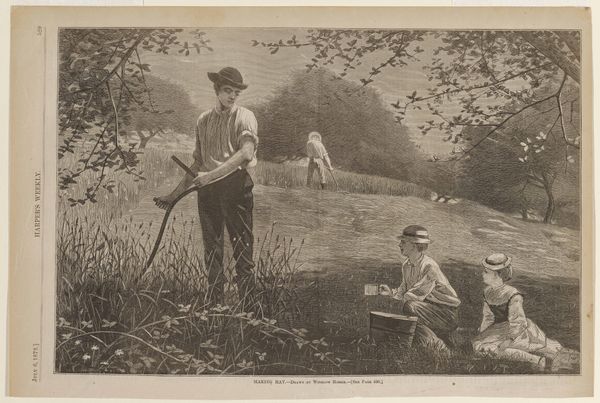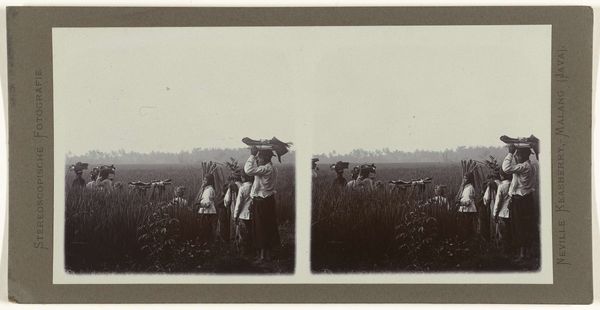
In the Barley-Harvest (Suffolk) Possibly 1883 - 1888
0:00
0:00
print, photography
#
print photography
#
16_19th-century
#
pictorialism
# print
#
landscape
#
photography
#
genre-painting
#
realism
Dimensions: 23.7 × 24.3 cm (image/paper); 42.6 × 33.9 cm (album page)
Copyright: Public Domain
Editor: This is Peter Henry Emerson's photograph, "In the Barley-Harvest (Suffolk)," likely taken sometime between 1883 and 1888. It’s a black and white print capturing three field workers. It has such a beautifully languid mood, even though they are presumably working hard. What do you make of it? Curator: Oh, it sings to me of summers long gone, those endless golden days thick with the scent of cut barley. Emerson was, if anything, a romantic. He truly believed photography should capture the fleeting beauty of a scene, and to elevate everyday life to the realm of art. See how he uses light and shadow to soften the edges, almost like a memory blurring at the edges? Editor: I see what you mean! It's almost painterly. So, was he deliberately trying to make it look less like a straight photograph? Curator: Precisely! He was a key figure in Pictorialism, an art movement that valued artistic effect over documentary accuracy. These photographs weren't just snapshots; they were carefully composed images meant to evoke a feeling. What feelings does this conjure up in you? Editor: A sense of quiet, but also…labor. A sense of rural timelessness maybe? Something nostalgic. Curator: Yes! And think about the social context. These rural workers are presented with a degree of dignity. It feels far away from some of the harsher depictions you sometimes see of rural labor from that period. A sort of idealized pastoral scene. Editor: It makes you wonder about the stories these men had, doesn't it? Imagining their lives... Curator: Absolutely! That’s the enduring magic of art – it whispers possibilities and invites us to dream. I come away seeing art from the mundane everyday!
Comments
No comments
Be the first to comment and join the conversation on the ultimate creative platform.
